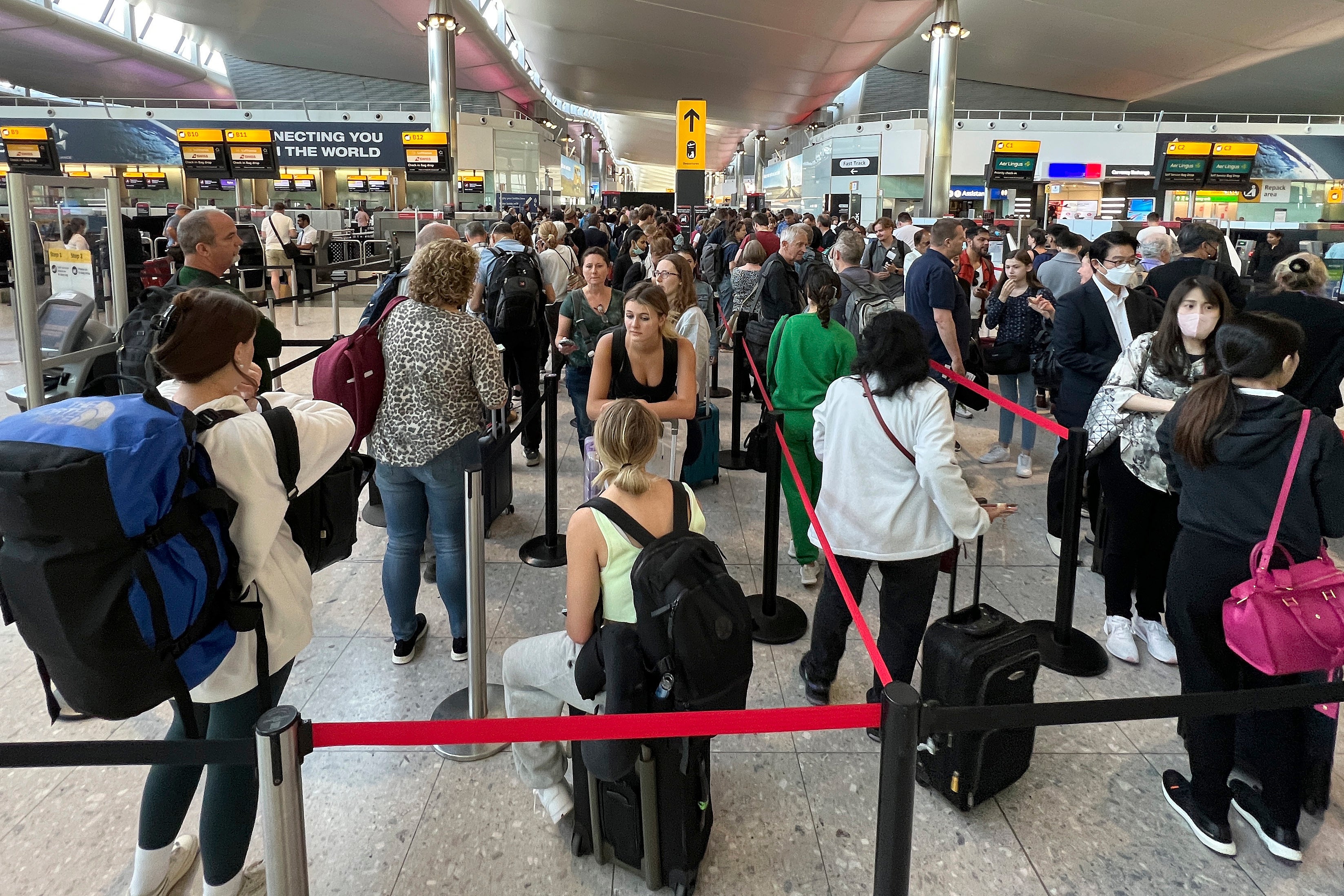NHS staff could be banned from striking, says cabinet minister
Government considering whether to curb rights of health workers, says Gillian Keegan

Rishi Sunak’s government is looking at whether NHS staff and other workers in the emergency services could be banned from taking part in strikes, cabinet minister Gillian Keegan has said.
Ms Keegan confirmed that ministers were considering legislation to restrict health workers and others in “areas of critical infrastructure” from taking part in strikes.
The government is said to be drawing up plans to curb the industrial action rights of NHS workers, firefighters and Border Force officials at the Home Office.
Asked if Mr Sunak is exploring legislation to ban those in the emergency services from striking, Ms Keegan told LBC: “We do have some areas where strikes are not allowed as part of the contract.”
“So for example the military can’t go on strike and the police. There’s some people, as a matter of public safety, you can’t go on strike,” said the minister.
Ms Keegan added: “I think what we’re looking at is, are there other areas that we should include in that. Health would be one to look at, and other areas of critical infrastructure.”
Asked if teachers could be added to the list, she said: “I don’t know. I haven’t looked at that. Obviously teachers are balloted at the moment… I’m hoping teachers don’t go on strike.”
Elaborating on government plans, Ms Keegan told BBC Radio 4’s Today programme: “I think what we’ve learned is that there are critical parts of our infrastructure that – if there is strike action – has a massive impact on all the people in the country. So what we need to do is look at that.”
The Sunak government is understood to be keen on introducing new legislation in January to enforce minimum service levels in key areas across the public sector during any strikes to limit disruption.
More radical plans for an outright ban on NHS ambulance staff and paramedics striking have also been looked at, according to The Times – though sources told the newspaper it could be “legally complex”.
Frances O’Grady, general secretary of the TUC, accused Mr Sunak of threatening British workers’ “fundamental liberty” and attempting “cheap political potshots”.
And the Royal College of Nursing’s general secretary Pat Cullen, said the government should “stop these cheap and divisive political games”.
The GMB, Unison and Unite unions earlier this week announced co-ordinated strikes by NHS staff including ambulance workers on 21 and 28 December.
The government’s existing bill to introduce a minimum service requirement in the transport sector is yet to start its progress through the Commons. Some Tory MPs have questioned whether any crackdown on striking rights could be enforced before the next general election.

The row comes as Border Force staff working in passport control prepare walk out from 23 to 26 December and again between 28 and 31 December at Gatwick, Heathrow, Manchester, Birmingham, Glasgow and Cardiff airports.
Ms Keegan said “we should be extremely grateful” to 2,000 Army personnel who are now set to fill in for striking Border Force staff over the festive period – but warned of disruption.
She told Sky News: “We’ve got 2,000 military personnel who are trained who are going to try and mitigate and try and help with some of those roles at the border. But you know, we do expect there will be disruption and delays, but they will do their best.”
The minister suggested that public sector pay rises larger those currently on offer would only fuel inflation. Asked how much the government was to blame for Christmas chaos, Ms Keegan said: “You can only do what you can do to try to control this.”
The education secretary also said she “very much hopes” a teachers’ strike in England is not inevitable and that the £2bn settlement over the next two years is “enough”.
“We’ve accepted the pay recommendations in full – between 5 per cent and 8.9 per cent depending on whether you’re an experienced teacher or a new teacher. So we’ve tried our very best to meet all the requirements,” she told Times Radio.




Join our commenting forum
Join thought-provoking conversations, follow other Independent readers and see their replies
Comments